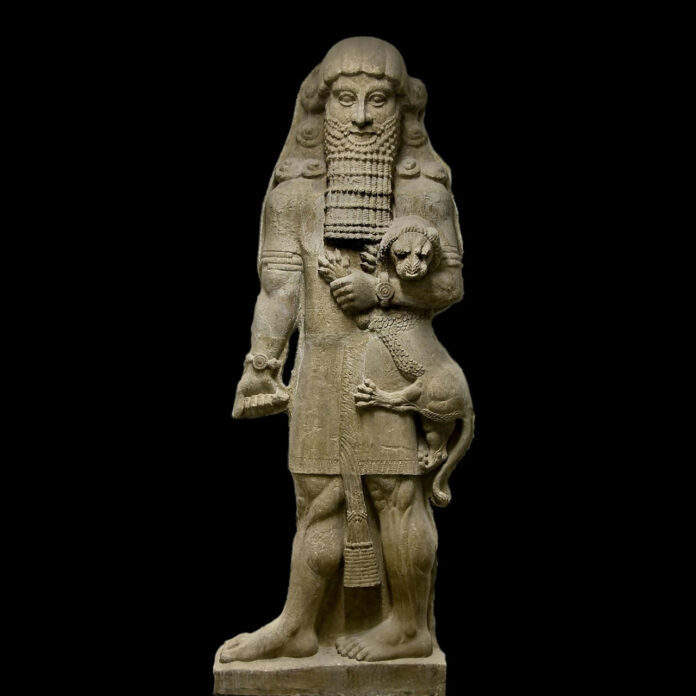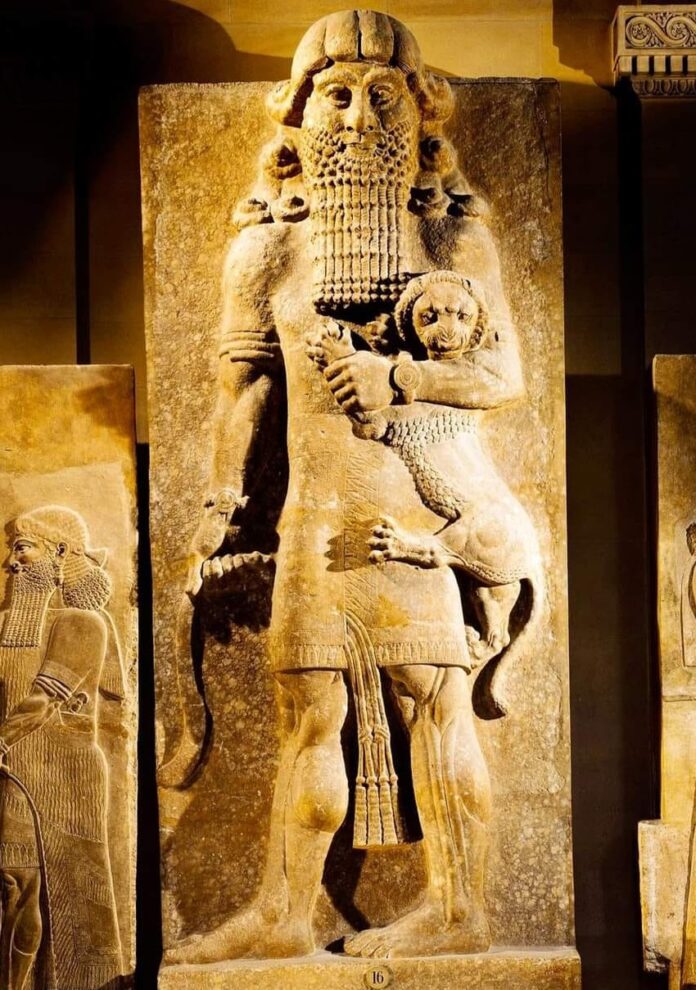In the annals of ancient history, few figures loom as large as Gilgamesh, the legendary king of Uruk who ruled with unparalleled might and wisdom. This remarkable demigod, a fusion of divine and mortal essence, has captivated the imagination of scholars and readers alike for millennia. His epic journey, as recounted in the oldest known work of literature, the Epic of Gilgamesh, offers a profound exploration of the human experience, touching upon themes of friendship, mortality, and the relentless search for meaning.
The Legendary Demigod King

In the ancient city of Uruk, nestled along the Euphrates River, Gilgamesh reigned supreme. Endowed with a strength that defied mortal limitations, he was said to be two-thirds divine and one-third mortal, a figure of awe-inspiring prowess. From a young age, his legendary abilities allowed him to conquer the natural world, felling wild beasts with a single blow and wrestling lions into submission. Yet, despite his god-like qualities, Gilgamesh felt a void within him, a yearning for something beyond the realm of mere mortal accomplishments.
The Epic Journey
The Epic of Gilgamesh recounts Gilgamesh’s most renowned exploits, beginning with the people of Uruk growing weary of their king’s arrogance. In response, the gods created Enkidu, a wild man of equal strength, to be Gilgamesh’s rival. When the two titans finally met, their battle shook the earth until they collapsed in mutual respect, forging a deep and abiding friendship. Together, they embarked on heroic quests, including the journey to the Cedar Forest, where they vanquished the fearsome guardian Humbaba. This act brought both glory and divine retribution, as the gods decreed that Enkidu must die as punishment for their defiance.
The Quest for Immortality

Gilgamesh’s loss of his dear friend Enkidu plunged him into profound grief, sparking a quest for immortality. Haunted by the specter of his own mortality, he could not bear the thought of the inevitable end that awaited him. His journey led him to Utnapishtim, the survivor of the Great Flood, who revealed that immortality was a gift granted only by the gods and could not be attained through human effort. Understanding this, Gilgamesh returned to Uruk, accepting his mortal fate but resolved to leave a lasting legacy.
The Enduring Impact
Gilgamesh focused his efforts on ruling wisely, constructing magnificent walls around Uruk, and ensuring his people’s prosperity. In doing so, he realized that true immortality lay not in living forever but in the enduring impact of his deeds and the stories told about him. The Epic of Gilgamesh, one of the oldest known works of literature, remains a testament to the timeless quest for meaning, friendship, and the acceptance of human limitations. Gilgamesh, the legendary king of Uruk, lives on through the words etched into clay tablets, a hero whose story continues to inspire and captivate the hearts of those who hear it.
Conclusion
The epic tale of Gilgamesh, the king of Uruk and hero of ancient Mesopotamia, stands as a testament to the enduring power of storytelling and the universal human experience. Through his journey of self-discovery, fraught with both triumph and tragedy, Gilgamesh emerges as a symbol of the eternal human search for meaning, purpose, and the acceptance of our own mortality. The Epic of Gilgamesh, one of the oldest and most influential works of literature, continues to resonate with audiences across cultures and centuries, reminding us that the greatest legacies are not those of the immortal, but of the mortal who leaves an indelible mark on the world.
